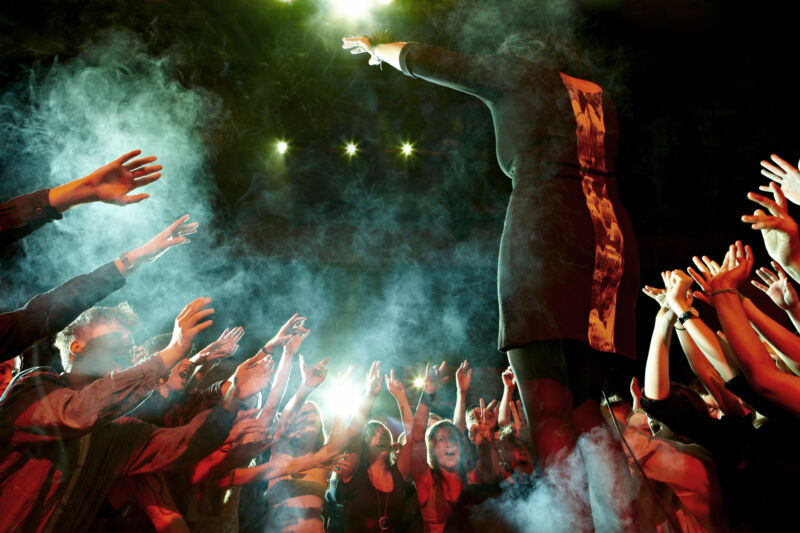
From ‘80s new wave to ‘90s grunge to the latest pop single, music has changed a lot over the decades. Those changes have come not only in terms of sound, though; lyrics have also evolved as time has passed.
So what has changed about the lyrics we can’t get out of our heads? After analyzing 12,000 English-language pop, rock, rap, R&B, and country songs released between 1970 and 2020, researcher Eva Zangerle of Innsbruck University and her team have found that lyrics have been getting simpler and more repetitive over time. This trend is especially evident in rap and rock, but it applies to other genres as well. Another thing Zangerle’s team discovered is that lyrics tend to be more personal and emotionally charged now than they were over 50 years ago.
Know the words…
“Just as literature can be considered a portrayal of society, lyrics also provide a reflection of a society’s shifting norms, emotions, and values over time,” the researchers wrote in a study recently published in Scientific Reports.
That’s why Zangerle created a dataset to find out the different ways in which lyrics have changed. She and her colleagues used the virtual music encyclopedia Genius, which also provides release year and genre information. From the lyric dataset she created, the team pulled data having to do with the structure, language, emotion, and complexity of songs. Five genres—pop, rock, rap, R&B, and country—were chosen because they are genres with the most lyrics that were popular on streaming platform last.fm.
There were two types of analyses done on the music. The first looked for the lyrical trends that were most prevalent for each release year, while the second went deeper into online views of lyrics, characteristics of lyrics (such as emotion), and release year. The researchers obtained the play count from last.fm and the lyrics view count from Genius.
How often people view the lyrics is unexpectedly important. Unlike play counts of songs, this stat shows how important lyrics are despite the popularity (or lack thereof) of the song or genre.
…and the meaning
What can lyrics tell us about different genres and eras? Results for the first analysis showed that certain characteristics are most important across genres, including repeated lines, choruses, and emotional language. The genres in which emotion was most important were country and R&B.
Repeated lines increased over the decades in all genres analyzed, and later lyrics contain more choruses than earlier ones. These increases are further proof that songs have become simpler and more repetitive since the ‘70s.
Lyrics were also more personal and angrier across all genres studied. Personal lyrics were identified by the number of personal pronouns, which especially increased in rap and pop, while rock and R&B saw moderate increases and country stayed nearly the same. Anger and other negative emotions (as expressed through words associated with these emotions) also increased across genres. Rap had the highest increase here, especially in anger, while country showed the lowest increase. Positive emotions decreased in pop and rock, while they increased somewhat in rap.
When looking at the results from the second analysis, Zangerle noticed that lyric views were higher for older rock songs than newer ones, and vice versa for country, which had lower view counts for older songs and higher view counts for new songs. This means that the popularity of country lyrics has increased over time in comparison to rock. Listening count had no relationship to this, meaning interest in the sound of a song was not related to interest in its lyrics.
Through the decades, it seems that music has gotten simpler, more repetitive, and more emotional—especially angrier—and more personal. The study didn’t look into what events and societal changes might have influenced this trend, but the researchers still had some sociological insights. They think pop is all about record sales and what’s hot from one moment to the next, while the preference for older rock songs shows that the main audience of rock is middle-class and against commercialism. Emotionally charged words could also convey feelings toward shifts in society.
The researchers “believe that the role of lyrics has been understudied and that our results can be used to further study and monitor cultural artifacts and shifts in society,” the study said.
Scientific Reports, 2024. DOI: 10.1038/s41598-024-55742-x
